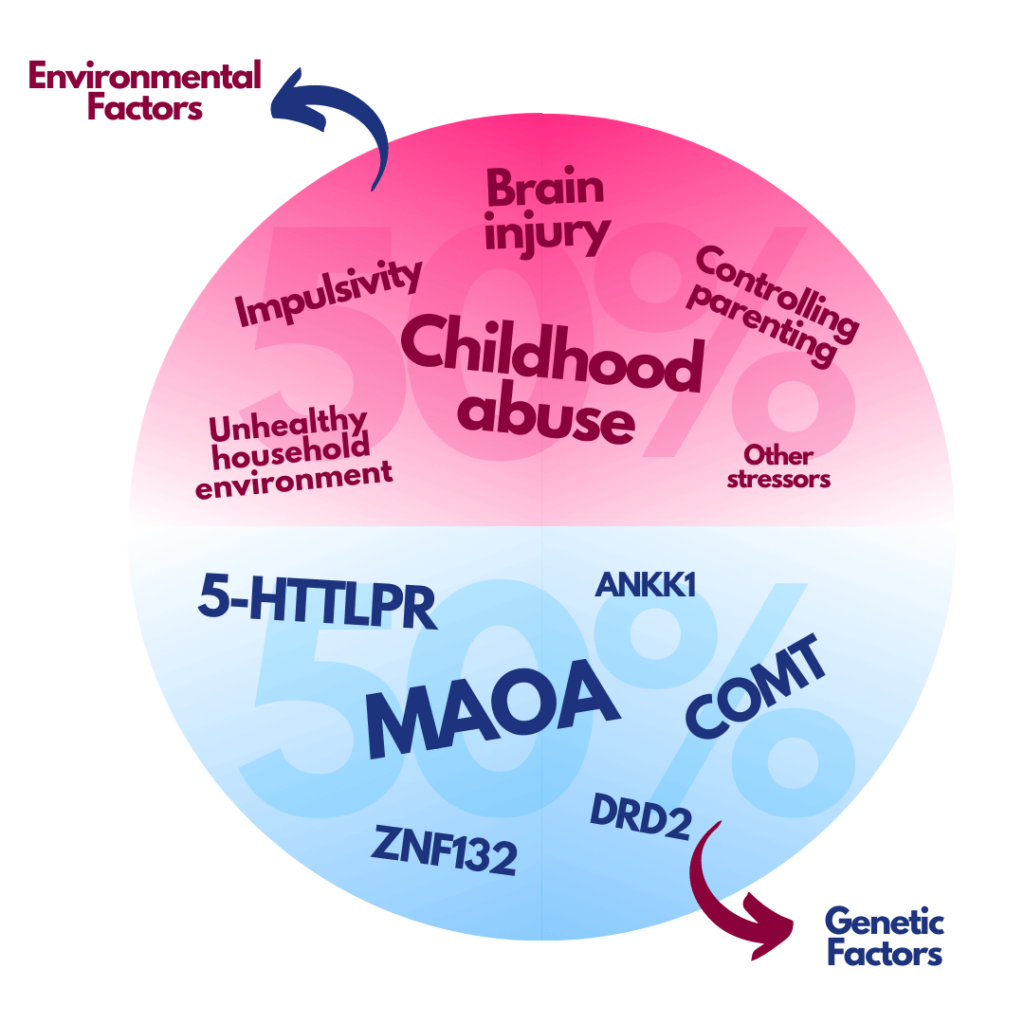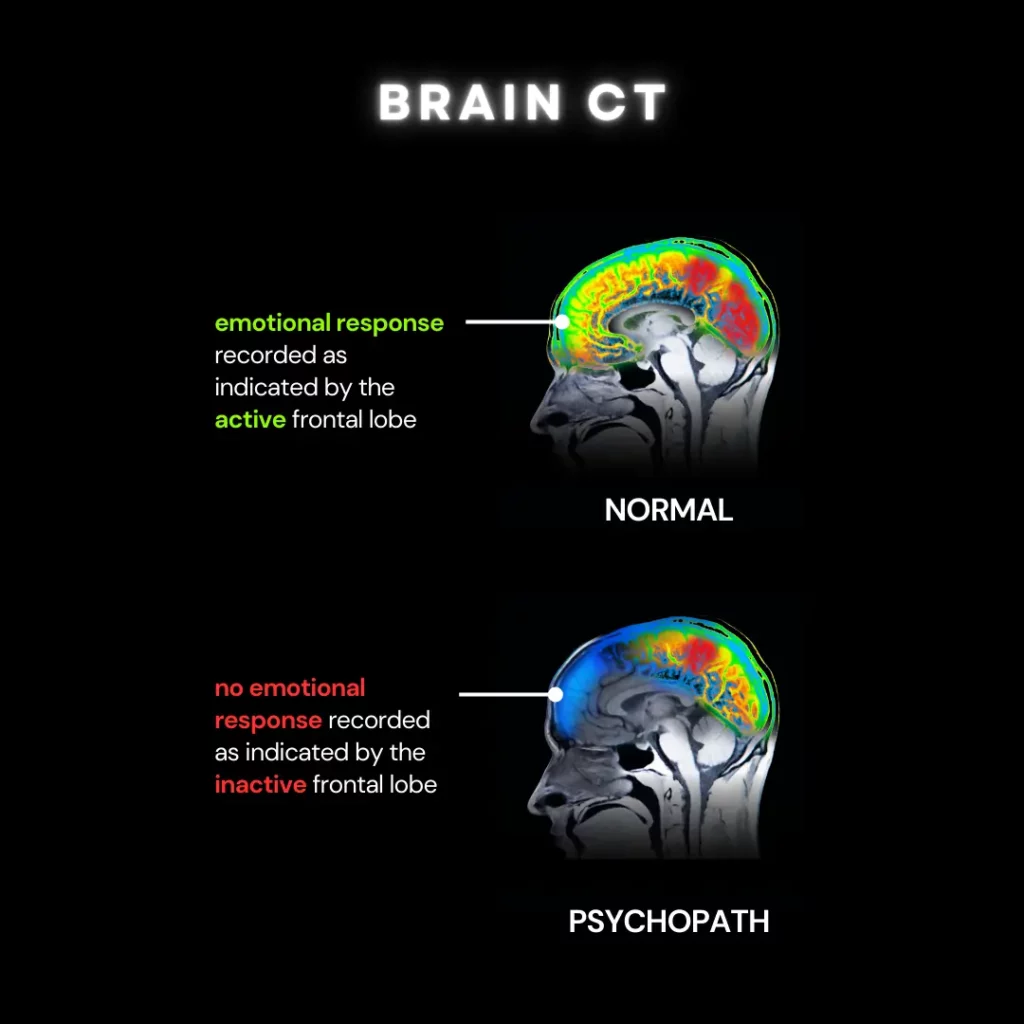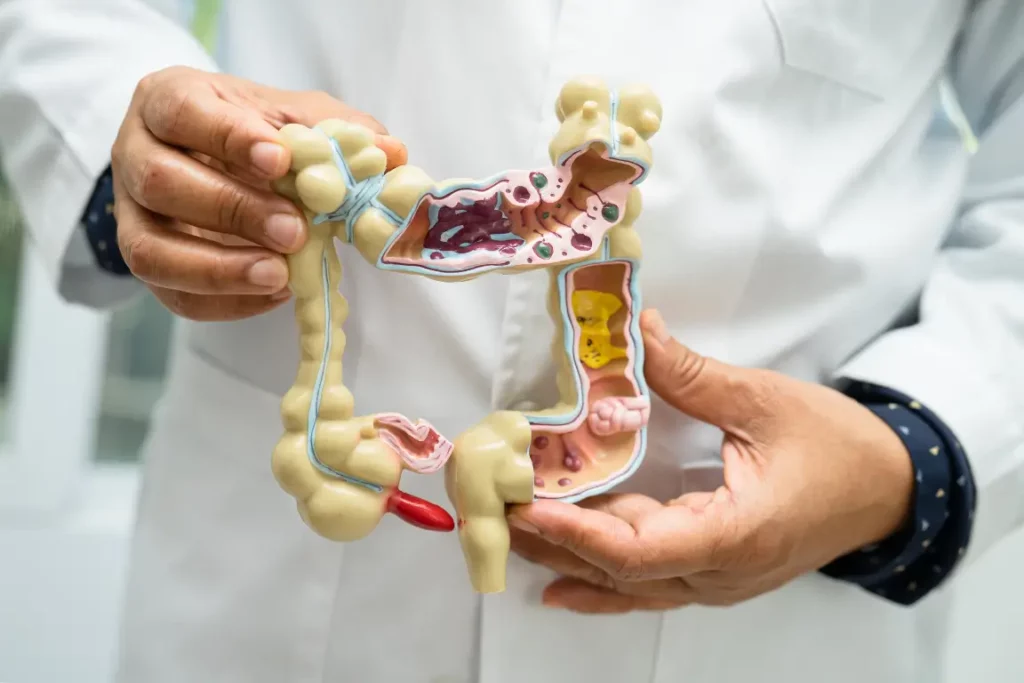Are psychopaths born or made? Despite decades of research, the origins of psychopathy remain elusive, with some experts attributing the condition to a complex interplay of genetic, environmental, and neurobiological factors. In this article, we delve into the latest research on the genetic basis of psychopathy and examine the evidence for and against a genetic cause.
What Causes Psychopathy?
“Psychopath” is a term used to describe a person who consistently exhibits callous and unemotional traits.
A lack of empathy, impulsiveness, antisocial skills, manipulation, abnormal emotional response, and violence all fall under “callous and unemotional traits.”
However, it is important to note here that psychopathy is not an official mental health diagnosis. Several traits seen in psychopathy also occur in antisocial personality disorder or sociopathy.
There is no single known cause for psychopathy. But several factors have been documented to play a role:
- Brain structure
- Genetics
- Trauma
- Exposure to violence in childhood
Is Psychopathy Genetic?
Research suggests that psychopathy tends to run in families.
The “callous and unemotional” traits seen in psychopathy have moderate to strong heritability, according to studies.
Expert opinion
Dr. Igor Galynker, an American psychiatrist, clinician, and researcher, says that 60-70% of psychopathy is genetic.
He further adds that this has been confirmed by adoption studies that examined identical twins who were separated at birth and raised in different families.
According to a 2011 study done on adoptees, having a criminal biological father was associated with higher psychopathic personality traits in males.
In fact, it increased the odds of the adoptees ranking in the top 10% of the psychopathy scale by 8.5 times!
Since adoptees don’t grow up with their biological parents, this displays an undeniable genetic influence on psychopathic traits.
Genes Linked To Psychopathy
However, there’s no single “psychopathy” gene.
Rather, the effects of several gene changes combined with certain environmental or lifestyle factors can result in psychopathy.
Some genes implicated in psychopathy are:
- MAOA
- COMT
- DRD2
- 5-HTTLPR
Most of these genes are involved in the breakdown of brain chemicals like dopamine and serotonin.
Any variants or changes in these genes can result in an imbalance in brain chemicals and may lead to abnormal behaviors.
Of these genes, MAOA is of particular interest.
This gene gives instructions for the production of the monoamine oxidase enzyme.
The MAOA enzyme breaks down brain chemicals like dopamine, serotonin, epinephrine, and noradrenaline.
Individuals with a particular variant of this gene - the MAOA-L, may produce lower quantities of the enzyme.
As a result, there may be an excess build-up of these signaling chemicals in the brain, leading to different impulsive behaviors.
In fact, in 2009, an Italian court reduced the sentence of a convicted murderer by one year, accepting the claim that he had a genetic version of the MAOA gene that encouraged aggressive behavior.
Will everyone with this variant of the MAOA-L gene show psychopathic traits?
Not necessarily!
This version of the MAOA gene only increases the likelihood of exhibiting psychopathic traits with specific environmental triggers.
In short, genetics plays a big role in the development of psychopathy by influencing brain structure and brain chemical levels. The inheritance of psychopathic traits is more pronounced in males than females.

Other Risk Factors For Psychopathy
Many environmental factors play a role in the risk of psychopathy.
Some of them include:
- Perinatal factors: Birth complications, smoking, or high stress levels during pregnancy
- Childhood experiences: Traumatic experiences like physical, sexual, or emotional abuse, poverty, housing instability, exposure to crime or violence
- Parenting style: Negative, harsh, and neglectful parenting is associated with antisocial behavior in children and adolescents
Brain Biology and Psychopathy
The brains of people with psychopathy show structural and functional differences in certain brain regions.
Prefrontal Cortex (PFC) and Amygdala
The PFC, located on the frontal lobe, is responsible for cognitive functions, while the amygdala regulates emotions.
Studies show that those with psychopathy exhibit reduced connections between these two brain regions as well as lower gray matter volume in both regions.
Hippocampus
A review study that looked at neuroimaging in people with psychopathy reported a reduced gray matter volume in the hippocampal region.
The hippocampus is responsible for memory, learning, and emotional processing.

Future Directions On Psychopathy Research
Identifying gene variants associated with psychopathy can help with early intervention in terms of providing the right environment or therapeutic support.
However, researchers have identified only a handful of genetic variants associated with psychopathy.
More genes could play equally important roles in causing the condition, which are yet to be discovered.
Future research on psychopathy will focus more on epigenetics and try to understand precise interactions between genes and the environment.
Such an understanding can help reduce the risk of individuals developing psychopathic traits.
Summary: Is Psychopathy Genetic?
Specific gene variants can increase one’s risk of developing psychopathy, and one can inherit these genes from the parents.
However, environmental factors like prenatal exposure, parenting techniques, neighborhood, and childhood can influence psychopathic traits equally.
Therefore, both genes and environment are interrelated and are equally important in determining whether or not a person grows to develop antisocial behaviors, including psychopathy.
Expert-recommended picks

How Does Anxiety Affect Your Brain?

The Gut-Brain Connection: Probiotics For Depression

Genetic Testing For Mental Health
References
- https://www.nature.com/articles/s41380-019-0488-z
- https://www.ncbi.nlm.nih.gov/pmc/articles/PMC2242349/
- https://www.sciencedirect.com/science/article/abs/pii/S0047235211000845
- https://ijponline.biomedcentral.com/articles/10.1186/s13052-017-0404-6
- https://www.sciencedirect.com/science/article/abs/pii/S0191886920300684
- https://jaapl.org/content/early/2021/01/06/JAAPL.200060-20
- https://medlineplus.gov/genetics/gene/maoa/
- https://www.ncbi.nlm.nih.gov/pmc/articles/PMC2933872/#b3




